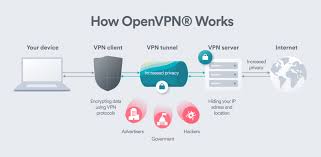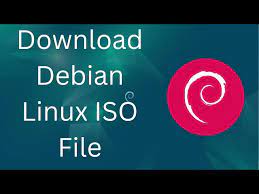Unlocking Privacy: The Open Source Power of OpenVPN
The Power of OpenVPN: A Secure Solution for Privacy
OpenVPN is an open-source virtual private network (VPN) solution that offers a secure and reliable way to protect your online privacy and data. With the increasing concerns over online security and privacy breaches, OpenVPN has emerged as a popular choice for individuals and businesses looking to safeguard their internet communications.
One of the key advantages of OpenVPN is its transparency and openness. Being an open-source software, its source code is freely available for anyone to inspect, modify, and distribute. This level of transparency not only ensures that the software is free from hidden backdoors or vulnerabilities but also allows the global community to collaborate in improving its security features.
OpenVPN uses robust encryption protocols to create a secure tunnel between your device and the internet, protecting your data from eavesdroppers and cyber threats. By encrypting your internet traffic, OpenVPN ensures that your online activities remain private and secure, even when using public Wi-Fi networks or accessing sensitive information.
Furthermore, OpenVPN is highly versatile and compatible with various operating systems, including Windows, macOS, Linux, Android, and iOS. Its flexibility allows users to deploy VPN connections across multiple devices and platforms without compromising on security or performance.
Whether you are looking to bypass geo-restrictions, access region-locked content, or simply enhance your online security, OpenVPN provides a reliable solution that prioritises user privacy and data protection.
In conclusion, OpenVPN exemplifies the power of open-source technology in providing secure and accessible solutions for internet privacy. By choosing OpenVPN, users can take control of their online security while benefiting from a trusted VPN service that upholds the principles of transparency, integrity, and user empowerment.
Essential Queries Answered: Understanding OpenVPN as Your Open Source VPN Solution
- What is OpenVPN?
- Is OpenVPN free to use?
- How does OpenVPN ensure my privacy?
- Can I use OpenVPN on my mobile device?
- How do I set up OpenVPN?
- Is it legal to use a VPN like OpenVPN?
- Can I trust open-source software like OpenVPN for security?
- Does using OpenVPN slow down my internet connection?
What is OpenVPN?
OpenVPN is a widely-used open-source virtual private network (VPN) solution that serves as a secure and versatile tool for safeguarding online privacy and data. As an open-source software, OpenVPN allows users to establish encrypted connections over the internet, creating a secure tunnel for transmitting sensitive information. By utilising robust encryption protocols, OpenVPN ensures that user data remains protected from potential threats and eavesdroppers, making it an essential choice for individuals and businesses seeking to enhance their online security. Its transparency, flexibility, and compatibility across various platforms make OpenVPN a trusted solution for those looking to maintain privacy and anonymity while navigating the digital landscape.
Is OpenVPN free to use?
OpenVPN, as an open-source software, is indeed free to use. Being open-source means that its source code is freely available for anyone to access, modify, and distribute without any licensing fees. This accessibility not only promotes transparency and community collaboration but also ensures that users can utilise OpenVPN for their privacy and security needs without incurring any costs. Whether you are an individual user looking to protect your online activities or a business seeking to secure your network communications, OpenVPN offers a cost-effective solution that prioritises user privacy and data protection.
How does OpenVPN ensure my privacy?
OpenVPN ensures your privacy through its robust encryption protocols and secure tunneling technology. When you connect to the internet using OpenVPN, your data is encrypted before being transmitted over the network, making it virtually impossible for eavesdroppers or malicious actors to intercept and decipher your communications. By creating a secure tunnel between your device and the internet, OpenVPN shields your online activities from prying eyes, ensuring that your sensitive information remains confidential and protected. Additionally, as an open-source solution, OpenVPN’s transparent nature allows users to verify its security measures and trust that their privacy is prioritised at all times.
Can I use OpenVPN on my mobile device?
Yes, you can use OpenVPN on your mobile device. OpenVPN offers support for various mobile platforms, including Android and iOS, allowing users to secure their internet connections and protect their data while on the go. By installing the OpenVPN app on your mobile device, you can easily configure VPN connections and enjoy a safe and encrypted browsing experience wherever you are. Whether you are using public Wi-Fi networks or accessing sensitive information on your mobile device, OpenVPN provides a reliable solution for enhancing your online security and privacy on the move.
How do I set up OpenVPN?
Setting up OpenVPN is a straightforward process that typically involves installing the OpenVPN software on your device, configuring the necessary settings, and connecting to a VPN server. To begin, you would need to download and install the OpenVPN client software compatible with your operating system. Next, you would configure the client by entering the server address, authentication details, and any additional settings provided by your VPN service provider. Once the configuration is complete, you can initiate a connection to the VPN server to establish a secure tunnel for your internet traffic. Detailed guides and tutorials are often available from VPN providers to assist users in setting up OpenVPN efficiently and securely.
Is it legal to use a VPN like OpenVPN?
Using a VPN like OpenVPN is legal in most countries around the world. VPNs are legitimate tools that individuals and businesses use to enhance their online security, privacy, and access to restricted content. However, it’s essential to note that while using a VPN itself is legal, the activities conducted through the VPN may still be subject to local laws and regulations. It’s advisable to familiarise yourself with the laws regarding internet usage and data privacy in your country to ensure that you use OpenVPN responsibly and within legal boundaries.
Can I trust open-source software like OpenVPN for security?
When it comes to security, the question of trust is paramount, especially in the realm of open-source software like OpenVPN. The transparency and collaborative nature of open-source projects, such as OpenVPN, instil a sense of confidence in users seeking to protect their online privacy. The community-driven development model allows for continuous scrutiny of the software’s code, ensuring that any vulnerabilities are promptly identified and addressed. With a strong emphasis on privacy and data protection, OpenVPN has established itself as a reliable and trustworthy solution for those prioritising security in their online activities. By leveraging the power of open-source technology, users can have greater peace of mind knowing that their sensitive information is safeguarded by a community dedicated to upholding the highest standards of security and integrity.
Does using OpenVPN slow down my internet connection?
One common query regarding OpenVPN, an open-source VPN solution, is whether using it will slow down internet connection speeds. The impact on internet speed when using OpenVPN can vary depending on factors such as the server location, network congestion, and the encryption level used. While there may be a slight decrease in speed due to the encryption process involved in securing data transmission, modern VPN technologies strive to minimise this impact to provide a balance between privacy and performance. Choosing a reliable VPN provider with optimised servers can help mitigate any potential slowdowns and ensure a smooth online experience while maintaining enhanced security and privacy protections.




